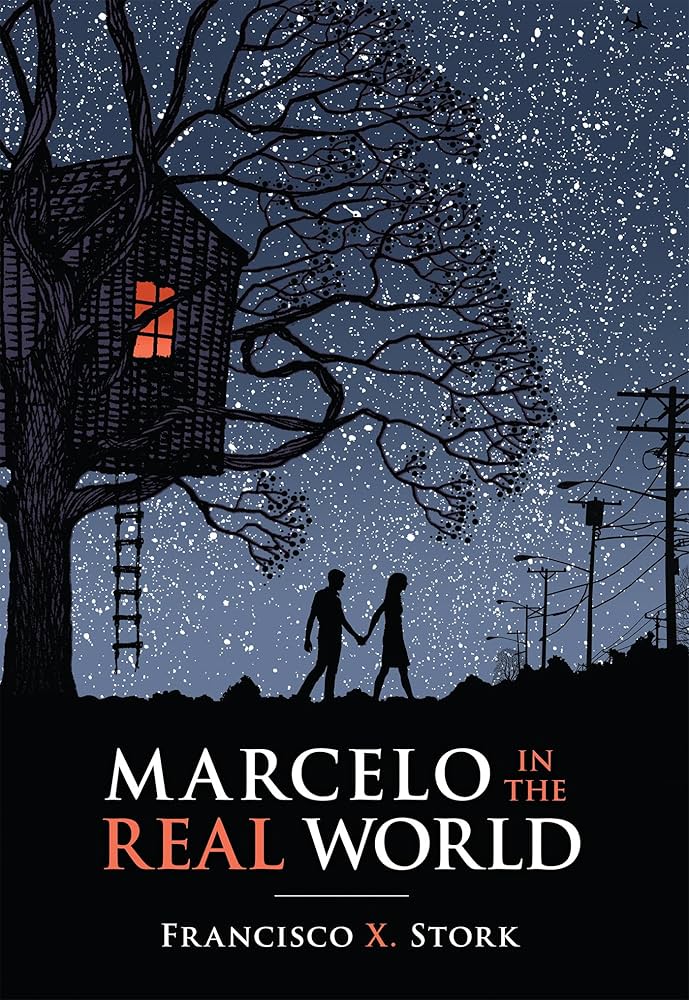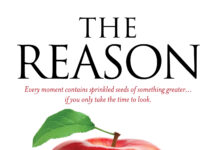In an era where the boundaries between perception and reality blur with increasing complexity, literature often serves as a compass for readers striving to make sense of their own experiences. *Navigating Reality: A Thoughtful Look at* Marcelo in the Real World embarks on such a journey, delving into the nuanced world crafted by Francisco X.Stork. This review seeks to explore how the novel challenges conventional notions of normalcy and truth through the eyes of its protagonist, offering a reflective lens on the intersection of individuality and society. Through a careful balance of narrative insight and critical analysis, the following pages invite readers to reconsider the ways in wich we define and navigate our own realities.
Exploring the Intricate Portrayal of Neurodiversity and Its Impact on Marcelo’s Journey Through the Real World
In marcelo in the Real World,neurodiversity is not merely a characteristic but a lens through which readers experience the world’s complexities. Marcelo’s unique viewpoint challenges conventional norms and invites us to rethink the boundaries between ability and limitation.His interactions, often tinged with sincerity and honesty, reveal how society’s misunderstandings can create invisible barriers. The narrative skillfully avoids clichés, presenting neurodiversity as a multifaceted experience brimming with both challenges and distinctive strengths.
Marcelo’s journey highlights several key themes that resonate beyond the pages, including:
- Empathy over judgment: His relationships demonstrate the power of understanding rather than labeling.
- Interaction in diverse forms: The story underscores how connection transcends traditional verbal exchanges.
- Personal growth: Marcelo’s path is as much about self-acceptance as it is about adapting to the world around him.
| Aspect | Portrayal in the Story | Impact on Marcelo |
|---|---|---|
| Sensory Sensitivity | Heightened awareness to sounds and textures | Creates moments of overwhelm but heightens his attentiveness |
| Social Interaction | Direct and honest communication | Builds trust yet sometimes leads to misunderstanding |
| Routine and Change | Preference for familiar patterns challenged | Encourages adaptability and resilience |
Delving Into the Complex Social Dynamics Marcelo Faces and How They Reflect Broader Societal Challenges
Marcelo’s experiences serve as a microcosm of the intricate social web that many individuals navigate daily. His interactions reveal underlying tensions between acceptance and exclusion,highlighting how societal norms often dictate the contours of belonging.At the heart of Marcelo’s journey is a quest for genuine connection, intricate by misunderstanding and stereotypes that echo broader issues like neurodiversity awareness and social stigmatization. His story challenges us to rethink how empathy is practiced and how communities can evolve beyond surface-level inclusion toward deeper, more meaningful integration.
Best-Selling Books in This Category
To better understand the societal patterns reflected in Marcelo’s life, consider the following factors that influence social dynamics:
- Communication Barriers: Differences in expression can lead to misinterpretation or isolation.
- Preconceived Notions: Stereotypes frequently enough create invisible walls around individuals, limiting interactions.
- Systemic Structures: Institutions may unintentionally reinforce exclusion through policy or culture.
- Community Response: The capacity for collective empathy shapes acceptance and opportunity.
| Social Challenge | Marcelo’s Experience | Broader Societal Impact |
|---|---|---|
| Communication | Difficulty conveying emotions | Misunderstanding leading to isolation |
| Acceptance | Facing skepticism from peers | Marginalization of neurodiverse groups |
| Support systems | Limited access to tailored resources | Wider gaps in equity and inclusion |
A Thoughtful Examination of Moral Ambiguity and Ethical Decisions That Drive the Narrative Forward

In Marcelo in the Real World, ethical dilemmas are not presented as black-and-white decisions but rather as complex puzzles that challenge the characters’ values and beliefs. Marcelo’s journey forces readers to confront uncomfortable questions about fairness, integrity, and the often blurry line between right and wrong. Through his interactions and choices, the narrative illustrates how real-world ethics rarely offer clear answers, compelling us to weigh consequences carefully and consider perspectives beyond our own. This fluidity in moral decision-making adds depth, encouraging readers to reflect on their own principles and the contexts in which they operate.
The story’s exploration of moral ambiguity is masterfully woven through moments that ask both Marcelo and the audience to evaluate priorities and intentions:
- Personal loyalty versus societal rules: When following laws feels unjust, where should allegiance lie?
- Emotional impulses versus rational judgment: How do feelings influence ethical choices?
- Individual needs versus communal good: What sacrifices are acceptable for the benefit of others?
by presenting these dilemmas without easy resolutions, the novel not only drives the narrative but also cultivates empathy and introspection, pushing readers to grapple with the same uncertainties Marcelo faces in his everyday reality.
The Role of Sensory Experiences in Shaping Marcelo’s Perspective and reader Engagement Throughout the Story
Throughout Marcelo in the Real World, sensory experiences serve as a vital conduit through which Marcelo interprets and interacts with his habitat, shaping not only his perspective but also how readers connect with the narrative. The author meticulously crafts moments where Marcelo’s heightened sensory awareness provides insight into his internal world. Whether it’s the overwhelming noise of a busy street or the subtle comfort of a familiar scent, these sensory details invite readers to glimpse reality through Marcelo’s unique lens. This immersive approach encourages empathy, highlighting how sensory stimuli can inform identity and influence one’s understanding of social norms.
These sensory cues do more than offer depth; they actively engage readers by anchoring abstract emotional experiences in tangible sensations. Key elements that enhance this engagement include:
- Tactile sensations: Marcelo’s responses to physical textures reveal his comfort zones and triggers.
- Auditory elements: The contrast between cacophony and calm mirrors his fluctuating emotional states.
- Visual perceptions: Sharp observations of colors and movements reflect his attention to detail and thought processes.
| sense | Marcelo’s Reaction | Narrative Impact |
|---|---|---|
| Sound | Often overwhelming, leading to withdrawal or focus | Builds tension and illustrates challenges in social interaction |
| Touch | Seeks comforting textures, avoids abrasive ones | Portrays vulnerability and self-soothing mechanisms |
| Smell | Links to memory and emotional anchoring | Adds layers of emotional resonance and nostalgia |
Character Development and Relationships That Illuminate Growth and Understanding in an Often Confusing World
Marcelo in the Real World masterfully captures the subtle evolution of its characters, using their interactions to shed light on personal growth amid complexity. Marcelo’s journey is not just about navigating his external environment, but also the intricate web of relationships that challenge and nurture his understanding of the world. His connections-whether tender, strained, or unexpected-serve as mirrors reflecting his inner conversion. Through moments of vulnerability and resilience, the narrative invites readers to witness how empathy and patience become guiding forces in decoding human behavior and embracing ambiguity.
The story’s heart lies in its nuanced portrayal of relationships that defy simple categorization. Consider the bonds Marcelo forms, each layered with emotion and unspoken truths:
- Familial ties that oscillate between protection and restriction, shaping Marcelo’s sense of self.
- Friendships that balance acceptance with the challenge of new perspectives.
- Romantic connections that open doors to vulnerability and emotional growth.
| Character | Relationship | Impact on Marcelo |
|---|---|---|
| Marcelo’s Father | Protective yet demanding | Creates internal conflict and drives self-assertion |
| Grace | Friend and mentor figure | Encourages openness and exploration |
| Ruby | Emerging romantic interest | Introduces complexity and emotional depth |
How the Setting Serves as a Catalyst for Change and Self-Discovery Amidst Everyday Realities
What makes this interplay particularly compelling is how the setting’s ordinary details are laden with significance.Through subtle encounters and nuanced experiences, Marcelo must learn to balance his unique perspective with the expectations and unpredictabilities around him.The process involves embracing ambiguity and imperfection, encouraging a shift from rigid logic to empathetic understanding. Key factors in this transformation include:
- Social Dynamics: Exposure to diverse viewpoints that challenge Marcelo’s worldview.
- Workplace atmosphere: Routine yet unpredictable conditions that require adaptability.
- Emotional landscape: Interpersonal relationships that develop depth and self-reflection.
| Setting Element | Impact on Marcelo | Resulting change |
|---|---|---|
| Office Environment | Exposure to routine & unpredictability | Learned flexibility and patience |
| Social Gatherings | Varied interpersonal interactions | Expanded empathy & understanding |
| Family Expectations | Pressure to conform | Asserted individuality and voice |
Balancing Humor and Serious themes to Create a Multi-Dimensional Narrative Experience
In Marcelo in the Real World, the interplay between humor and serious themes forms a delicate dance that enriches the narrative without diminishing its emotional weight. By weaving moments of lightheartedness into complex issues such as neurodiversity and moral growth, the story refuses to confine itself to a single emotional register. This balance invites readers to experience Marcelo’s journey in a more holistic way, where laughter becomes a gateway to empathy rather than a distraction. The subtle humor frequently enough arises from Marcelo’s unique perspective on the world, providing not just comic relief but also an authentic voice that challenges societal norms with gentle irony and insight.
The success of this storytelling approach can be attributed to several key narrative strategies, including:
- Character-driven humor: grounded in genuine personality traits rather than forced jokes.
- Contextual sensitivity: ensuring that comedic elements never undermine the gravity of underlying themes.
- Layered dialog: where conversations reveal both wit and profound truths together.
Below is a quick overview of how this balance functions across the novel’s emotional spectrum:
| Emotional Element | Role in Narrative | Effect on Reader |
|---|---|---|
| Humor | Lightens heavy moments | Builds connection and accessibility |
| Serious Themes | Explores identity and morality | Provokes reflection and empathy |
| Blend of Both | Create authenticity | Enhances complexity and engagement |
The Narrative Structure and Its Effectiveness in Conveying Marcelo’s Internal and External Conflicts
The narrative of Marcelo in the Real World masterfully intertwines the protagonist’s internal dilemmas with the external pressures of a society he strives to understand. Through a multi-layered storytelling approach, readers are drawn directly into Marcelo’s perspective, experiencing his world as a blend of sensory intensity and cognitive challenges. the shifts between his internal monologues and interactions with the outside world create a rhythm that mirrors the constant tension he faces. This technique emphasizes how Marcelo’s thought processes diverge from conventional social patterns,making his conflicts not just personal struggles but commentaries on broader societal expectations.
Structurally, the novel employs:
- Interweaving timelines – Juxtaposing Marcelo’s past experiences with present realities, highlighting growth and obstacles.
- Multiple perspectives – Offering insights from characters who embody different social attitudes and prejudices.
- Symbolic interactions – Using seemingly mundane events to reflect deeper psychological battles.
These elements combine to craft a narrative that not only tells a story but invites the reader to participate in Marcelo’s journey toward self-discovery and societal integration.
| Conflict Type | Narrative Technique | Effect on Reader |
|---|---|---|
| Internal (Self-doubt) | Stream of consciousness | Fosters empathy and immersion |
| External (Social prejudice) | Dialogue and confrontation | Highlights societal tension |
| Internal (Sensory Overload) | Detailed sensory descriptions | Creates vivid, relatable experience |
| External (Family Expectations) | Character interactions and conflict | Demonstrates complex relationships |
Recommendations for Readers Seeking Insightful Stories About Acceptance, Identity, and Personal Growth
For readers drawn to narratives that explore the delicate intersections of acceptance, identity, and personal growth, this story offers a profound journey into the complexities of human experience.It doesn’t simply tell a tale; it invites you to reflect on the nuances of belonging and self-awareness through its richly developed characters and evocative storytelling. The narrative’s strength lies in its ability to balance emotional depth with genuine moments of insight, making it an invaluable companion for anyone seeking more than a conventional coming-of-age story.
Consider these essential themes carefully woven throughout the book:
- Empathy and understanding: Encouraging readers to step into unfamiliar shoes with compassion.
- Challenging societal norms: Demonstrating how identity is frequently enough shaped and reshaped through external expectations.
- Inner resilience: Highlighting the courage it takes to embrace one’s true self amid adversity.
| Theme | Impact on Readers |
|---|---|
| Acceptance | Fosters open-mindedness and patience |
| Identity | Inspires deeper self-reflection |
| Growth | Encourages resilience and change |
Ultimately, this story serves as a canvas where readers can project their own journeys and find solace in the shared human quest for understanding. It’s a thoughtful reminder that growth often comes from navigating the boundaries between who we are and who the world expects us to be.
How navigating Reality Invites Reflection on Our Own Perceptions of Normalcy and Difference
In Marcelo’s journey through the labyrinth of everyday life, we are gently prompted to reconsider what we often label as “normal.” His interactions unravel the fine threads of societal expectations, revealing how deeply subjective our perceptions truly are. The boundaries between normalcy and difference blur, urging us to pause and question the standards we’ve internalized. As Marcelo navigates through a world that frequently misunderstands him, readers find themselves reflecting on their own implicit biases and the fluidity of the very concepts that shape our social existence.
The novel subtly encourages a layered examination of identity and acceptance, highlighting that the unfamiliar is not inherently alien but simply a variant of human experience. Consider the following contrasts that emerge through Marcelo’s eyes:
- Conformity vs. Individuality: How do societal rules constrain unique expressions?
- Perception vs. Reality: What do we miss when we judge through preconceived lenses?
- Inclusion vs. Exclusion: Who decides where the line is drawn, and why?
| Perception | Marcelo’s Experience | Societal Norm |
|---|---|---|
| Communication | Unique, direct, frequently enough misunderstood | Standardized verbal and social cues |
| Social Interaction | Intentional but non-traditional | Routine patterns of behavior and roles |
| Decision-making | Reflective, sometimes unconventional | Predictable, conformity-driven |
Through these reflections, the narrative invites us not only to empathize with Marcelo but to embrace a more expansive and inclusive understanding of human diversity.
The Subtle Yet Powerful Use of Symbolism Enhancing the Emotional Depth of Marcelo’s Story
Symbolism in Marcelo in the Real World operates as a quiet language beneath the surface, weaving emotional resonance throughout the narrative. The recurring motif of music, for instance, is not merely a backdrop but a mirror reflecting Marcelo’s inner world. Each melody and rhythm echoes his evolving understanding of self and his environment, allowing readers to feel his isolation and gradual integration into society. Objects like the headphones he wears serve as more than physical items; they symbolize his desire for protection and his initial detachment from a reality he finds overwhelming. This seamless integration of symbols enriches the story, inviting readers to look deeper into Marcelo’s experiences and emotions without explicit explanations.
additionally, the subtle use of colors and settings enhances emotional undercurrents substantially.Such as, the contrast between the vibrant, noisy real world and the muted, calm environment of Marcelo’s family home creates a visual metaphor for his emotional journey. This duality is neatly summarized in the following table, illustrating how specific symbols align with emotional themes:
| Symbol | Emotional Theme | Contextual moment |
|---|---|---|
| Headphones | Protection & Isolation | marcelo’s initial retreat from social chaos |
| Music | Connection & Expressiveness | Moments of personal breakthrough |
| color Palette | Contrast of Worlds | Home vs. workplace scenes |
- Symbols enrich the narrative without overshadowing the authenticity of Marcelo’s character.
- Visual and auditory elements serve as emotional signposts guiding the audience through internal and external conflicts.
- Subtlety in symbolism invites personal interpretation, enhancing the story’s worldwide appeal.
Exploring the Dialogue and Language Choices That Bring Authenticity to Marcelo’s Unique Voice
Marcelo’s voice is sculpted with a distinct blend of candidness and introspection, conveyed through carefully crafted dialogue that mirrors his inner world. The language choices resonate with a poetic simplicity, avoiding verbosity while embracing moments of profound clarity. His interactions feel organic-sometimes hesitant, sometimes bold-capturing the essence of someone who is both observing and processing the complexities of the reality around him.This balance between directness and subtlety not only defines his character but also invites readers to pause and reflect alongside him.
The authenticity of Marcelo’s voice emerges through a combination of stylistic elements that align seamlessly with his personality and experiences. Notice how informal contractions and fragmented sentences punctuate his speech, echoing genuine thought patterns. here’s a glimpse of techniques used to create that unique tone:
- Use of pauses and hesitation: Reflecting uncertainty or contemplation.
- Repetitive language: Emphasizing key emotions or thoughts.
- Simple metaphors: Bringing clarity to complex feelings.
- Conversational rhythm: Mimicking real-life speech cadence.
| Dialogue Element | Effect on Marcelo’s voice | Example |
|---|---|---|
| Ellipses & Pauses | Creates natural hesitations | “I guess… I’m not sure.” |
| Repetition | Highlights emotion or conflict | “It’s just… it’s just hard.” |
| Slang & Informality | Builds relatability | “Yeah, no worries.” |
| Metaphorical Language | Conveys deeper meaning | “Feels like I’m floating in a fog.” |
An Appreciation of the Author’s Craftsmanship in Blending Accessible Prose With Profound Themes
One of the most striking qualities of Marcelo in the Real World lies in its masterful use of clear, approachable language that effortlessly conveys complex ideas. The author’s prose is unpretentious yet evocative, inviting readers from various backgrounds to engage with weighty themes without feeling overwhelmed. This balance is not accidental; it serves as a bridge between accessibility and depth, ensuring that the narrative resonates on both an emotional and intellectual level. Through simple but precise diction, the story unfolds naturally, allowing readers to navigate the protagonist’s challenges and internal conflicts with genuine empathy. The craft lies in making the profound feel personal and the abstract tangible.
Moreover,the thematic richness is elegantly woven throughout the text,reflecting on issues such as morality,identity,and societal norms with remarkable subtlety. Rather than presenting philosophical dilemmas in a didactic manner, the author embeds them seamlessly into everyday interactions and character development, encouraging readers to ponder their own realities. This fusion can be broken down as follows:
- Clarity in Storytelling: Narrative progression thrives on simple, relatable scenarios.
- Complex Ideas Simplified: Ethical and existential questions are grounded in lived experience.
- Character-Driven Insights: Personal growth mirrors broader societal conversations.
| Element | Role in the Narrative | Effect on Reader |
|---|---|---|
| Accessible language | Engages diverse audience | Facilitates empathy and understanding |
| Deep Themes | Provokes thought and reflection | invites contemplation beyond the page |
| Character Development | Illustrates thematic concerns | Personalizes abstract ideas |
About the Writer Who Brings Marcelo in the Real World to Life With Compassion and Nuance
At the heart of Marcelo in the Real World lies a storyteller who approaches complex themes with genuine sensitivity and insight. The author crafts a world where the boundary between innocence and experience blurs, offering readers a lens filled with empathy rather than judgment. This ability to illuminate the subtleties of human behavior, especially through the eyes of a protagonist navigating unique challenges, demonstrates a profound understanding of the human spirit.Every character is given depth, not as mere archetypes, but as living, breathing individuals shaped by their circumstances and choices.
What sets the writer apart is their commitment to presenting nuanced perspectives without oversimplification, inviting readers to reflect deeply rather than seek easy answers. The narrative is enriched by subtle details and thoughtfully constructed scenarios that foster connection and authenticity. Key qualities of the writer’s approach include:
- Authentic Depiction: Crafting characters that resonate with real-life complexities.
- Emotional Intimacy: Creating moments that reveal vulnerability and resilience.
- Balanced Perspective: Highlighting multiple viewpoints without bias.
- subtle Storytelling: Employing symbolism and themes that encourage reflection.
Navigating Reality: A Thoughtful Look at Marcelo in the Real World offers readers more than just an analysis-it invites us to rethink how we perceive difference, connection, and the everyday challenges that shape our human experience. Whether you’re already familiar with Marcelo’s story or encountering it anew, this review serves as a gentle guide through the layers of complexity that make the novel resonate. It’s a reminder that understanding reality isn’t a fixed destination, but an ongoing journey-one that this book navigates with care and insight.













